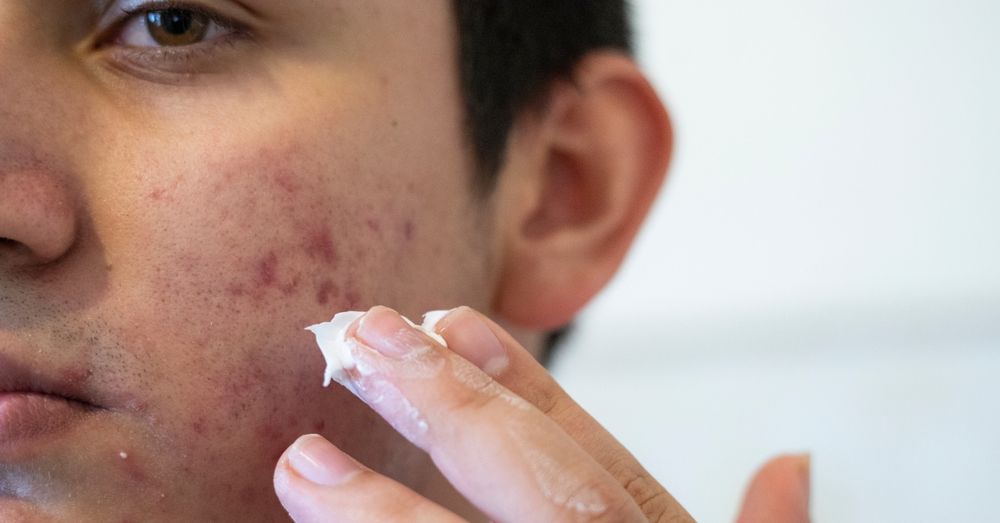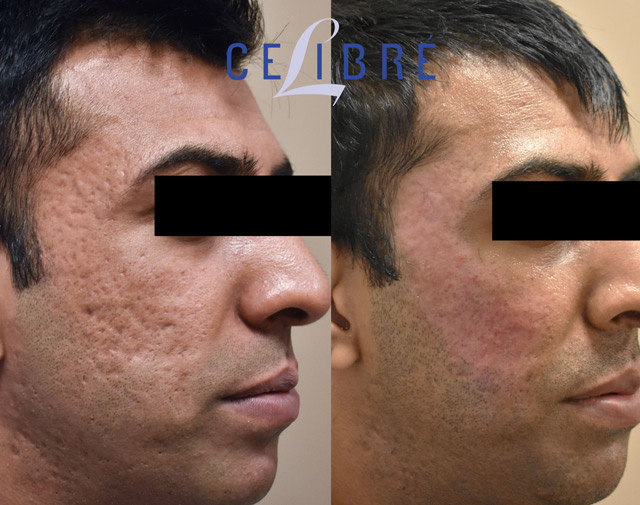Top Acne Treatment for Sensitive Skin: Gentle Solutions for Clear Skin
Top Acne Treatment for Sensitive Skin: Gentle Solutions for Clear Skin
Blog Article
Recognizing the Numerous Skin Problem and Effective Therapy Alternatives for Acne Scars
Acne scars represent a complicated interaction of skin problems that dramatically impact people' self-esteem and overall skin health and wellness. As we check out the landscape of acne scar administration, it ends up being noticeable that the trip towards more clear skin might include more than just topical options.
Sorts Of Acne Scars

On the other hand, hypertrophic marks arise from an overflow of collagen during the recovery procedure, resulting in increased areas on the skin. These marks are usually firm and can differ in color, in some cases showing up red or darker than the bordering skin.
Understanding these kinds of acne scars is critical for creating a reliable treatment strategy - acne treatment for sensitive skin. Options may include chemical peels, laser therapy, microneedling, or dermal fillers, customized to the particular mark type. An extensive appointment with a dermatologist can help establish the most appropriate treatment, considering the individual's skin type, scar extent, and overall skin health and wellness
Reasons For Acne Scarring
Scarring takes place as a result of the body's all-natural healing action to inflammation and injury brought on by acne lesions. When acne forms, it sets off an inflammatory feedback, resulting in the launch of numerous cytokines and growth variables that advertise healing. Nonetheless, this procedure can occasionally lead to excessive cells development or insufficient fixing, leading to marks.
The primary root causes of acne scarring consist of the severity of the acne itself, duration of the sores, and private skin types. Serious inflammatory acne, such as nodules and cysts, is much more likely to result in scarring due to much deeper cells damages. In addition, improper handling of acne lesions, such as pressing or choosing, can worsen tissue injury and swelling, boosting the probability of scarring.
Hereditary proneness likewise plays a considerable function; people with a family members background of scarring go to a higher threat. Skin kind and color can affect scar development, as darker skin tones might experience post-inflammatory hyperpigmentation, while lighter skin may establish atrophic scars.
Inevitably, comprehending these causes is essential in managing acne and mitigating the possibility for scarring.

Therapy Choices for Scarring
Effective therapy choices for acne scarring differ depending on the kind and seriousness of the scars. Typically classified into atrophic, hypertrophic, and keloid scars, these conditions require tailored approaches for optimum results.
For atrophic marks, which are defined by a loss of tissue, therapies such as chemical peels, microdermabrasion, and laser treatment are generally used. These techniques promote skin revival and boost collagen production, thereby boosting skin texture. Subcision, a minimally intrusive treatment, can likewise work by breaking up coarse bands below the skin.
Keloid and hypertrophic marks can be more testing to treat. Alternatives include corticosteroid shots to lower inflammation and squash the scars. Sometimes, cryotherapy or laser therapy might be recommended to reduce their look.
Surgical alternatives are offered for extreme scarring, where excision or skin grafting may be necessary. It's vital for people to seek advice from a dermatologist to assess their specific scar type and go over one of the most ideal therapy strategy. Incorporating several treatments typically generates the very best results, guaranteeing that each patient's special skin disease is dealt with successfully.
Home Solutions and All-natural Solutions
Natural options and natural home remedy can provide an easily accessible strategy for individuals looking for to improve the appearance of acne marks (acne treatment for sensitive skin). Numerous active ingredients discovered in the home kitchen area have actually demonstrated prospective advantages in enhancing skin structure and advertising healing

An additional efficient option is lemon juice, which works as an all-natural exfoliant and can lighten hyperpigmentation. It needs to be utilized meticulously, as it might trigger photosensitivity. Oatmeal masks are likewise advantageous; their mild exfoliation can aid get rid of dead skin cells while calming irritation.
Crucial oils, such as tea tree oil and lavender oil, can even more sustain scar recovery as a result of their antimicrobial properties. It is vital to perform a spot examination before applying any kind of remedy to make sure there are no adverse reactions. These all-natural solutions can be a corresponding technique in the trip to decrease acne scars.
Protecting Against Future Scarring
Embracing a positive technique to skin care can considerably reduce the danger of establishing future acne marks. Among the crucial techniques is to take care of acne properly as it go to my blog arises. This includes utilizing non-comedogenic skincare items and drugs prescribed by dermatologists that target acne without irritating the skin. Normal cleaning, peeling, and hydration can assist keep skin wellness and protect against blocked pores.
Additionally, avoiding the temptation to pick or squeeze acne lesions is essential, as this can cause inflammation and succeeding scarring. Rather, people must concentrate on applying topical treatments that promote healing and reduce inflammation. Ingredients such as salicylic acid, benzoyl peroxide, and retinoids are recognized for their efficiency in taking care of acne and lessening marks.
Sunlight security is another vital part; direct exposure to UV rays can dim scars and hinder Visit Website healing. Consequently, making use of a broad-spectrum sun block daily can alleviate these impacts - skin rejuvenation treatments.
Finally, preserving a healthy and balanced diet abundant in antioxidants and staying moisturized supports skin regrowth. By applying these safety nets, people can substantially lower their threat of future scarring and advertise overall skin wellness.
Final Thought
Finally, a thorough understanding of acne scars, incorporating both hypertrophic and atrophic types, is crucial for efficient therapy techniques. Customized treatments, including specialist treatments and natural remedy, can significantly enhance skin look and texture. Safety nets additionally play an essential function in minimizing future scarring. Examination with a skin specialist remains critical to develop individualized approaches that think about private skin kinds and scar extent, ultimately improving the efficiency of mark administration strategies.
Acne scars represent a complex interaction of skin conditions that significantly effect people' self-esteem and overall skin health. The 2 key groups of acne marks are hypertrophic and atrophic scars. These marks are additional identified right into 3 subtypes: ice choice scars, which are slim and deep; boxcar marks, which are bigger and have well-defined edges; and rolling scars, which produce a wave-like appearance due to unequal skin appearance.
A comprehensive appointment with a skin specialist can help identify the most ideal intervention, taking into account the person's skin kind, scar extent, and total skin health.
Consultation with a skin doctor stays original site vital to develop customized methods that consider private skin kinds and scar seriousness, ultimately enhancing the effectiveness of mark administration techniques.
Report this page